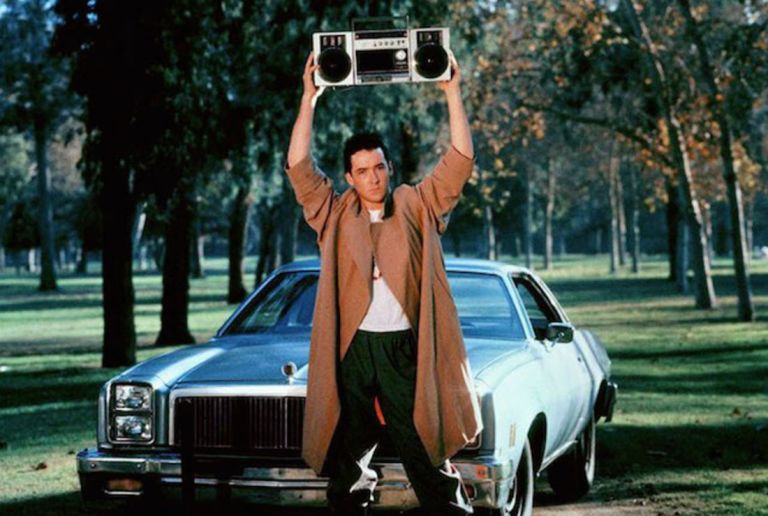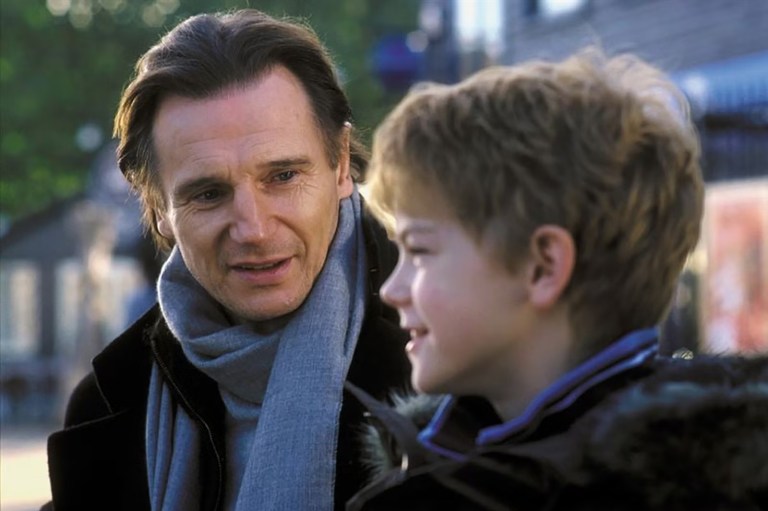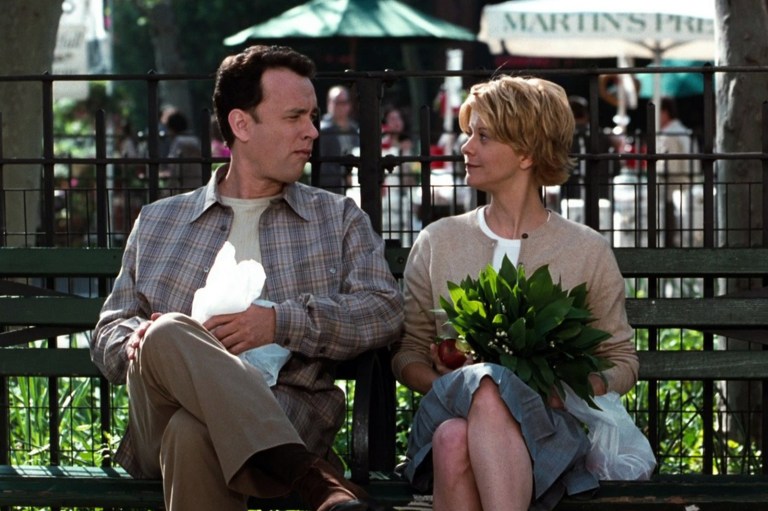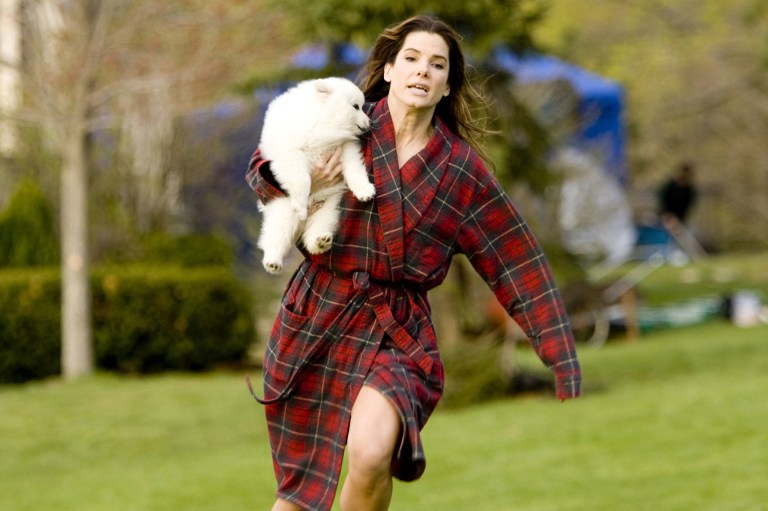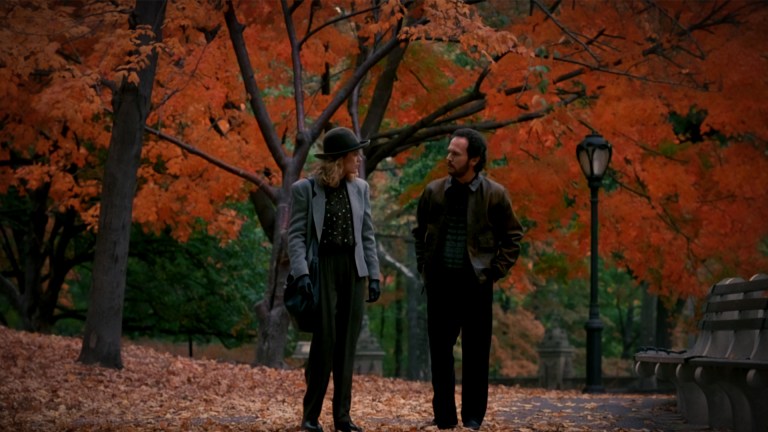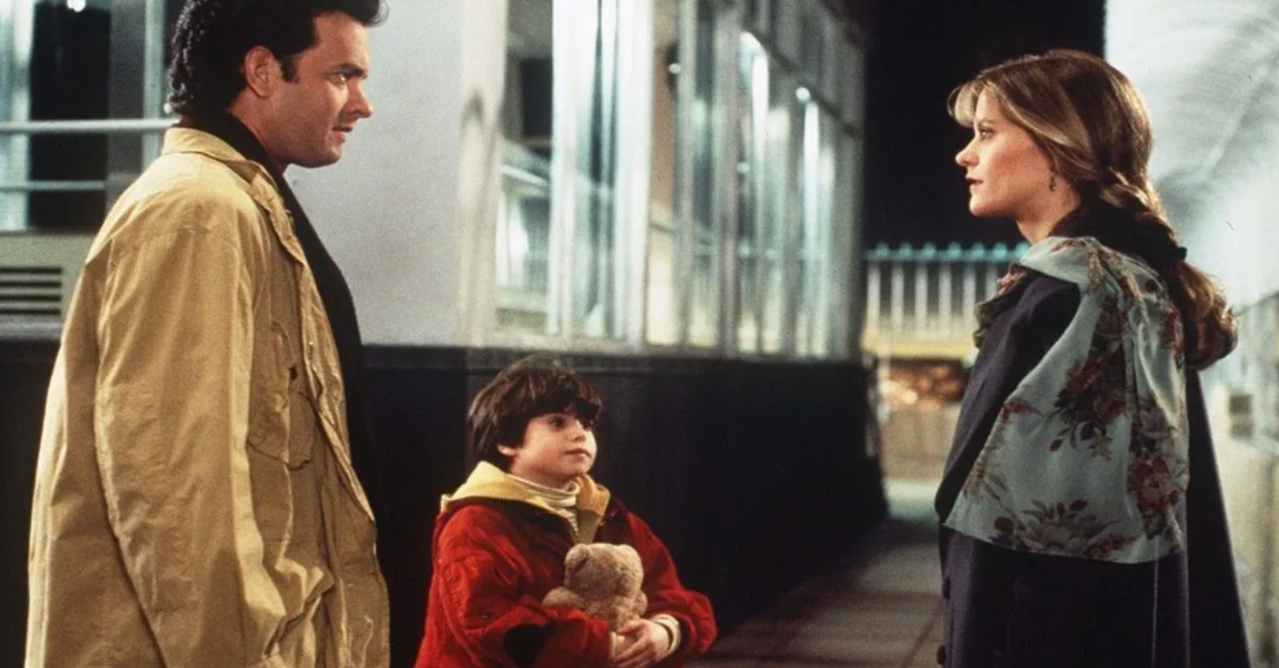
Sleepless in Seattle’s Parasocial Relationship Is Toxic As Hell, But We Love It Anyway
Ask anyone for a list of the classic romantic comedies that are a must-watch and Sleepless in Seattle will always make the list. All of our moms and grandmas swooned over widower Tom Hanks and wished they could be Meg Ryan, falling in love on the Empire State Building. Despite the rabid fanbase, the 1993 Nora Ephron hit shows just how toxic a parasocial relationship can be. I mean, should we really be rewarding Meg Ryan’s intense stalking? Short answer: sure.
Need a reminder of this classic? At the beginning of Sleepless in Seattle, we see Tom Hanks’ Sam moving from Chicago to Seattle as a way for him and his 8-year-old son Jonah to have a fresh start after his wife died. He just wants to get away so there are no more reminders of the wife and mother that they miss so dearly.
Enter the talk radio segment. Jonah calls a talk radio helpline to see if anyone can help his dad find a girlfriend. He sees how sad his dad is, and how he’s getting no sleep, so he asks for help from a mostly predatory talk show host. True to form, the host gets Sam on the phone and bleeds him dry of all his heartache and emotion. As expected, the phone lines light up with scores of women who want to take Sam just because he showed a little emotion over the airwaves.
That’s where things get a little sticky. Meg Ryan’s Annie is listening to this whole thing all the way from Baltimore, Maryland. Like the rest of the women glued to their radios, she’s immediately fawning over our good pal Sam. She’s already engaged to perennially allergic-to-everything Walter, but does that stop her from concocting elaborate plans to win Sam’s heart? That’s a big NOPE.
What follows is a masterclass in stalking. Annie uses her connections at the newspaper to find Sam’s address in Seattle. She hires a private detective to follow him and take pictures. She then flies all the way to Washington to stare him down while almost getting smeared across the pavement because she just had to do her stalking while standing in the middle of a busy road.
While stalking is nothing we haven’t all discussed before, there’s something else hidden here that’s super relevant in 2022: The parasocial relationship.
Parasocial relationships occur when someone feels a connection to a celebrity or other public figure. That public figure shows a curated look into their lives and their fans feel as if they are “friends” because of it. In Sleepless in Seattle, Annie is one of many women who hear one 15-minute radio segment and fall in love with a man she doesn’t know.
They feel like they know him because he seemed to bare his soul for a moment, but they don’t really know him. That’s the danger with parasocial relationships: Fans can feel like they have a real relationship with someone when it’s really only one-way. Just like Sam had no idea who Annie was, Paul Rudd has no idea who you are. (Sorry.)
In 2022, the dangers of parasocial relationships are even more prevalent. With smartphones in our pockets and apps like TikTok, Instagram, and YouTube, we see even more of our favorite actors, musicians, and influencers. Fans will find out where their favorite YouTubers live and just show up at their houses. Actors will be stalked and sometimes murdered.
All this to say: parasocial relationships are no joke. Meg Ryan’s Annie falling in love with Tom Hanks’ Sam shows how easy it can happen. And the fact that her plan to lure him and his son to the Empire State Building works and they end up hand-in-hand? It could be the proof a weirdo needs to justify their obsession. Still, do we penalize Sleepless in Seattle for it? Do we admonish the stalking and the inappropriate fan relationship, relegating this rom-com classic to the dumpster of forgotten films? Or do we love it for what it really is: A fantasy that shows how important it is to find someone who makes your heart race when you finally brush hands?
Let’s leave the conclusion to Meg Ryan and Rosie O’Donnell’s characters toward the end of the movie:
Annie: Is this crazy?
Becky: No, that’s the weirdest thing about it.
